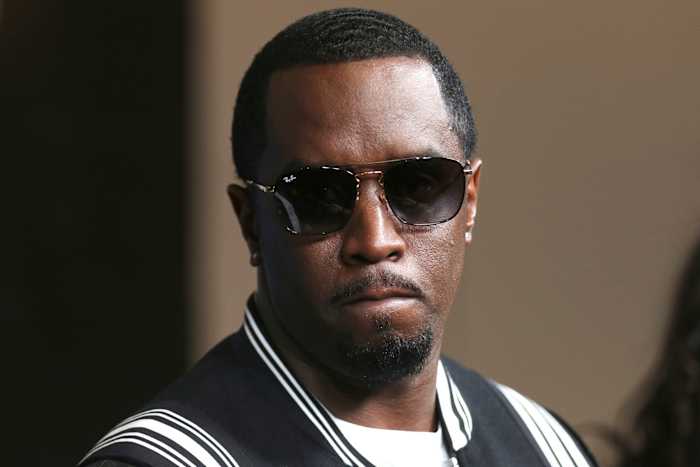
Jury in Diddy’s sex trafficking trial to resume deliberations after reaching partial verdict
July 2, 2025
Stadium where Babe Ruth played in Tokyo is at the center of a disputed park redevelopment plan
July 2, 2025Senate Republicans on Tuesday passed President Donald Trump’s “Big Beautiful Bill,” which could have major ramifications for Black Americans.
Among other things, the legislation would gut Medicaid, slash funding for the Supplemental Nutrition Assistance Program, and limit access to federal student loans — outcomes that would disproportionately burden Black Americans, who rely on these services at higher rates.
Trump has given his allies in the House and Senate, both of which are controlled by Republicans, until July 4 to deliver the bill, which will now return to the House.
Here’s what Trump’s domestic policy agenda could mean for Black Americans, and how Black civil rights advocates and lawmakers are responding.
What does the “Big Beautiful Bill” say?
To pay for Trump’s policy priorities — including tax breaks for wealthy households, more funding for deportations and the military, and clean energy disinvestment — the 940-page bill would cut spending on Medicaid and the Supplemental Nutrition Assistance Program, previously known as the Food Stamps program, and overhaul management of the country’s student loan system.
While the proposed requirements vary, the legislation would generally tie eligibility for Medicaid and food assistance to participation in a work program for at least 80 hours a month.
Under the House’s version of the bill, around 10.9 million more people would be left without health insurance, and 3 million more would lose their eligibility for food assistance, according to an analysis by the nonpartisan Congressional Budget Office.
Additionally, the legislation would restrict student loan borrowing to $257,000 and remove the option to defer repayment if borrowers are facing economic hardship or unemployment.
Trump’s attempt to curtail government programs mirrors the efforts of some of his predecessors, including Ronald Reagan and Richard Nixon, Lenwood V. Long Sr., the chief executive officer of an organization that focuses on Black economic well-being, argued in a recent commentary piece.
Their domestic policy agendas “left urban, predominately Black communities susceptible to prolonged underinvestment and discrimination” and sought to “sway public opinion and justify the gutting of public assistance programs,” he wrote.
How would the “Big Beautiful Bill” impact Black communities?
Black Americans would bear the disproportionate brunt of the bill’s proposed changes.
Some 20% of Medicaid enrollees are Black, though Black Americans make up 14% of the U.S. population. Similarly, an estimated 27% of adult and child SNAP recipients are Black, according to the Pew Research Center. And Black borrowers not only owe a disproportionate amount of the national student loan debt — they’re also more likely to struggle to repay their loans.
The bill would increase the national debt by $3.3 trillion. One analysis of the legislation found that households in the bottom 10% of incomes would see an average reduction of 6.5% of their income.
Black civil rights advocates and lawmakers have been raising the alarm about the potentially devastating impact of the legislation.
A June 26 letter — signed by eight organizations that represent Black communities — says that the bill would “cut programs that are lifelines to Black people and other communities of color and encroach on the rule of law and civil rights.” The letter calls the legislative effort both “fiscally reckless” and “morally indefensible.”
The signatories include the NAACP Legal Defense and Educational Fund, the National Urban League, and the National Council of Negro Women.
U.S. Sen. Lisa Blunt Rochester of Delaware echoed some of these concerns in a statement to Capital B earlier this year.
“Medicaid has been a lifeline for millions of families in this country, but it has also helped us address critical disparities in health for Black communities,” she said, referring to how Medicaid has helped to address the Black maternal health crisis. “Without access to this care, we risk exacerbating deep-rooted inequalities and putting lives at risk.”
What’s next for the “Big Beautiful Bill”?
Trump has been pressuring his party to pass the bill by the artificial deadline of July 4 so that he can sign it into law.
In the Senate, a marathon voting session occurred earlier this week. Lawmakers proposed changes to the legislation before it went to a final vote. It will now go back through the House. Only then can it go to Trump’s desk.
In the meantime, Black civil rights advocates are urging Americans to get in touch with their lawmakers to tell them how they feel about the bill.
“The bill’s nearly 1000 pages are full of cuts to the poor & deals for the rich,” Janai Nelson, the president and director-counsel of the NAACP Legal Defense and Educational Fund, wrote on social media, calling the legislation a “Big Billionaire Bonanza.”
This story has been updated.
Great Job Brandon Tensley & the Team @ Capital B News Source link for sharing this story.





